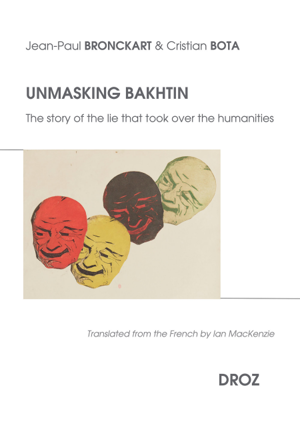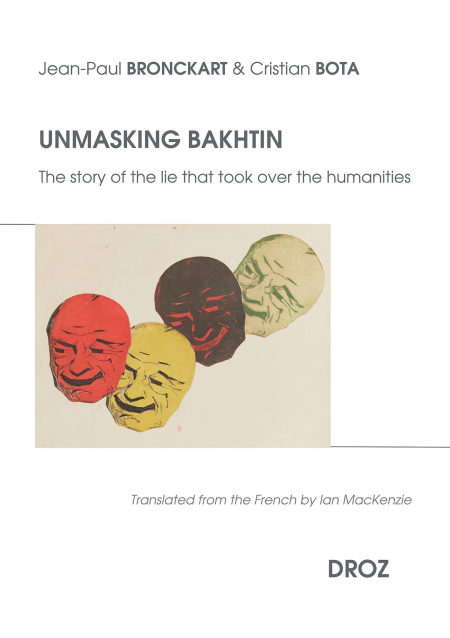
- Retrait gratuit dans votre magasin Club
- 7.000.000 titres dans notre catalogue
- Payer en toute sécurité
- Toujours un magasin près de chez vous
- Retrait gratuit dans votre magasin Club
- 7.000.0000 titres dans notre catalogue
- Payer en toute sécurité
- Toujours un magasin près de chez vous
Description
The (presumed) author of books on Dostoevsky and Rabelais, Mikhail Bakhtin was elevated to the rank of “the greatest theoretician of literature in the twentieth century” by a two-pronged process: the publication of a number of his old manuscripts, and the assertion that he was also the true author of most of the texts published in the 1920s under the names of his “friends” P.N. Medvedev and V.N. Voloshinov, who both died at an early age. Even though the theory of authorial substitution rests entirely on the declarations of Bakhtin, this dual process gave birth to the “Bakhtin Industry,” involving the elaboration of extremely creative hypotheses as to how exactly the works signed by his friends were written, and numerous studies aiming to demonstrate the unity and coherence of the Bakhtinian corpus. But at the end of the 20th century, the publication of archival texts and interviews with Bakhtin revealed that he had lied about his biography and about his participation in the writing of the disputed texts. Further research showed that the supposed dates of his early manuscripts had been falsified, and that many of these writings consist largely of plagiarism. Jean-Paul Bronckart and Cristian Bota’s conclusions lead us to investigate the motivations behind Bakhtin’s usurpation of other people’s work, as well as the true origin of the various texts that appeared under his name. They also call for reflection as to why belief in the existence of a single and homogeneous Bakhtinian corpus persists among many literary scholars, alongside their continued celebration of its author’s many-sided genius.
Spécifications
Parties prenantes
- Auteur(s) :
- Editeur:
Contenu
- Nombre de pages :
- 506
- Langue:
- Français
Caractéristiques
- EAN:
- 9782600360203
- Date de parution :
- 31-12-18
- Format:
- Ebook
- Protection digitale:
- Digital watermarking
- Format numérique:
- ePub

Les avis
Nous publions uniquement les avis qui respectent les conditions requises. Consultez nos conditions pour les avis.






